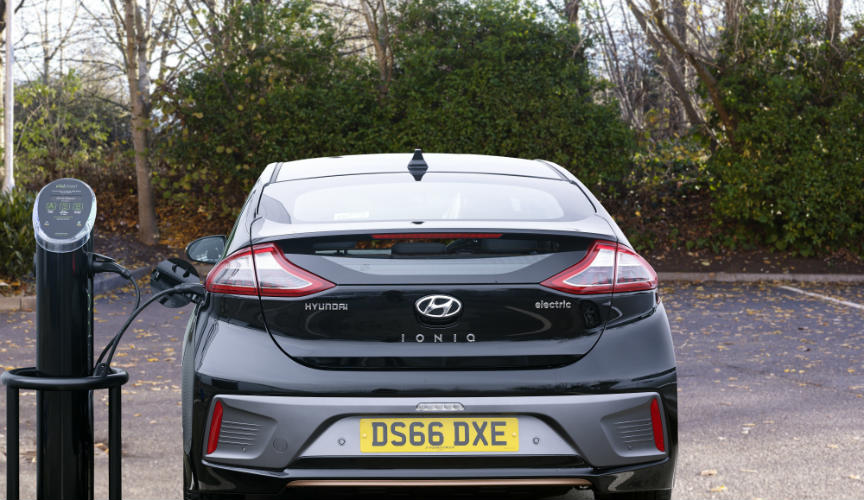https://www.jthughes.co.uk/Blog/View/Electric-Cars-Slashing-Your-Taxes-While-Reducing-Your-Carbon-Footprint/11695
Electric Cars: Slashing Your Taxes While Reducing Your Carbon Footprint

At JT Hughes, we are aware of the ever evolving business landscape inhabited by our corporate clients. In 2017, the case for hybrid and electric cars has never been more compelling. Company fleets can benefit from tax savings, thanks to the comprehensive reward scheme set up by the UK government, while also enhancing corporate social responsibility (CSR) agendas by reducing their carbon footprint significantly.
The incentive to look at electric company car options is augmented by the recent announcement that 2040 will be the last year of sales for internal combustion engines in the UK.
If you are interested in a hybrid or electric fleet, please contact : julie.whittingham@jthughes.co.uk for more information, and continue reading this article, which will detail the advantages of going electric.
Take note of the tax benefits
By making the switch to hybrid or electric, your organisation could be in line for a range of tax benefits. Let’s have a look at some of the main tax reliefs offered to electric and hybrid fleets in the UK:
Ads by JT Hughes
Scroll to continue with content
Road tax
Shropshire and Powys businesses with regional and national interests typically spend a lot of time on the move. And the good news is, so long as your electric power is coming from an electric storage battery or an external source – which it likely will be – electric cars in your fleet will not have to pay road tax. Should you need to venture down to the capital, you’ll also be pleased to hear that London’s Congestion Charge won’t apply, aside from the registration fee.
Plug-in grant
Another boon is the plug-in grant which the UK government has offered to electric car users. Benefits delivered by the grant are determined by the fuel emissions of a car, and are defined as follows:
Category 1 - CO2 emissions of less than 50g/km and can travel 112km with no CO2 emissions, such as our Hyundai IONIQ Electric – grant pays up to 35 per cent of purchase price, to a value of £4,500.
Category 2 - CO2 emissions of less than 50g/km and can travel 16km with no CO2 emissions, such as our Mitsubishi Outlander – grant pays up to 35 per cent of purchase price, to a value of £2,500.
Category 3 - CO2 emissions of 75g/km and can travel at least 32km (20 miles) with no CO2 emissions – grant pays up to 35 per cent of purchase price, to a value of £2,500.
Capital Allowances
In addition to the above, companies can claim capital allowances on low emission fleets – it works by subtracting the value of the vehicles from profits before tax is paid.
A 100 per cent First Year Allowance (FYA) is in place for businesses investing in low emission cars, applicable up until April 2021. There is an impending change to note set for April 2018 – from then on, the qualification level for a FYA will come down from a CO2 emissions rate of 75g/km to 50g/km.
Electric vs Petrol – the tax comparison
In order to break down the tax breaks which are available for organisations committed to going electric, let’s make a theoretical comparison.
Imagine Joe Bloggs Ltd is in the market to by its director a new company car, and intends to pay for the fuel used by the director. They are looking at both Car A, with a Diesel engine, and Car B, an electric car, and want to weigh up the differing tax implications of both purchases.
Let’s say for the sake of the comparison, that both cars are priced at £30,000 and that the annual taxable profits of Joe Bloggs Ltd are £200,000. With Car B, the vehicle qualifies for the UK Plug-In Grant, meaning the cost to the company would be £25,500. Meanwhile, as its emissions are greater than 75g/km, Car A would not qualify for the grant.
The Joe Bloggs Ltd director earns £150,000 a year and doesn’t contribute to the payment for the car, with Joe Bloggs paying for the fuel.
Joe Bloggs Ltd would pay only four per cent corporation tax on Car B thanks to its 0g/km CO2 emissions rate, but if they choose Car A, they are looking at 16 per cent corporation tax, due to a CO2 emissions rate of 134g/km.
The Honda CR-V Hybrid Prototype

Exciting times are ahead at JT Hughes as another one of the brands we offer, Honda, prepares to make its entry into the hybrid market. The Honda CR-V will be available to corporate customers in 2018 after being unveiled at the Frankfurt Motor Show this year. This hybrid SUV is comparable to the Hyundai Tuscon in terms of its fuel efficiency, and will offer drivers a range of near features, including Intelligent Multi Mode Drive (i-MMD) and a two-motor hybrid setup.
You may also be interested in; A guide to electric car charging point locations in Shropshire